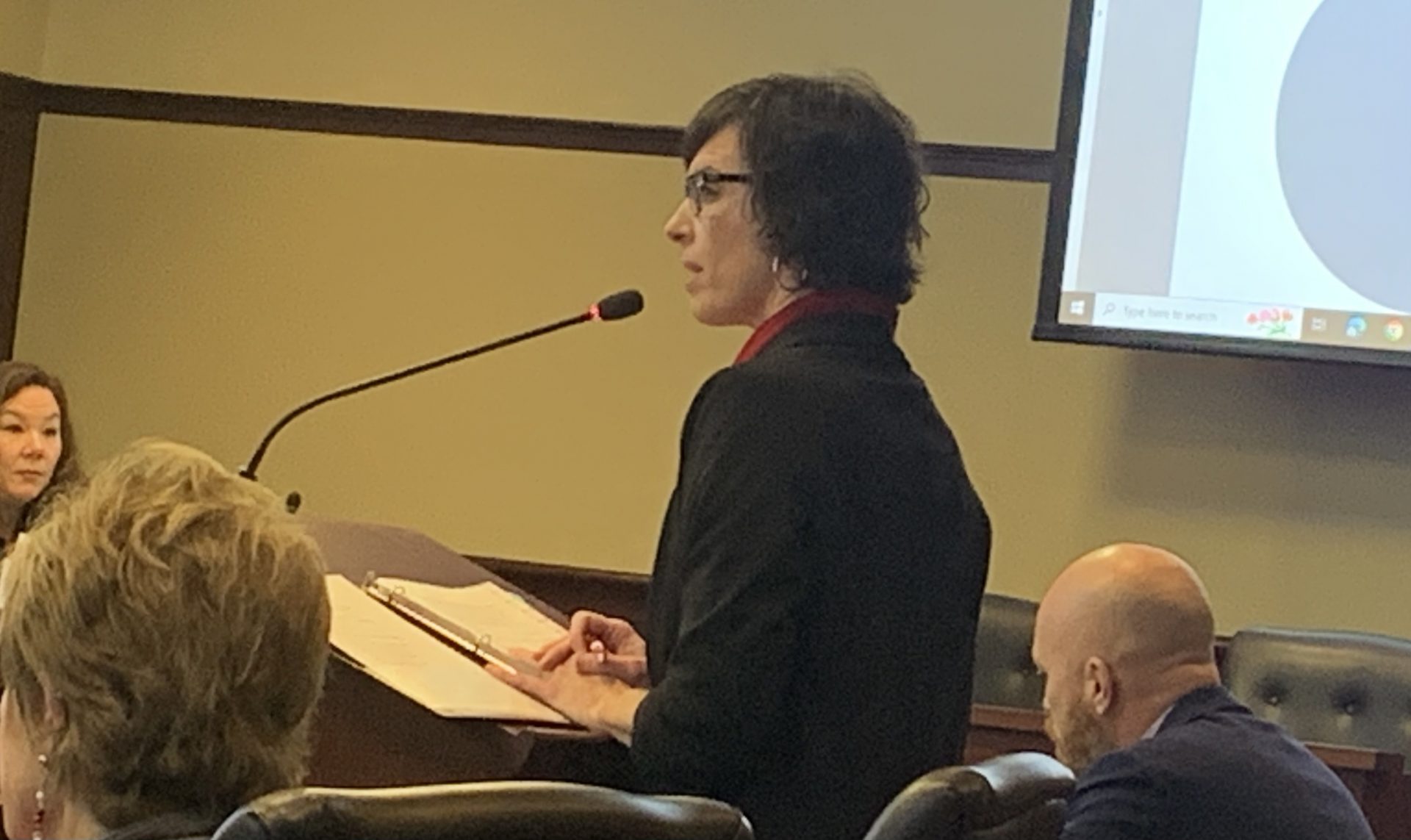A controversial school choice bill ignited a long debate in the Senate Education Committee Tuesday afternoon — leaving some 70 people waiting to speak, and a committee vote on hold.
The debate will continue Wednesday, with a vote likely at the end of the hearing.
The bill of focus, Senate Bill 1038, would establish a universal education savings account program, using around $45 million of state money. An earlier version of the bill pegged the cost of an ESA program at $19.4 million, but was amended to accommodate for more students, at a higher cost.
Under the legislation, any family with a K-12 student would be eligible to apply for an ESA and receive a $5,950-per-child scholarships (representing 80% of what the State Department of Education pays school districts per student). Parents could put the ESA toward private school tuition and fees or other approved education expenses.
But to utilize the funds, a student cannot be enrolled in public school.
The funds would be dispersed by the SDE and the state treasurer, and spent through a third-party online vendor. Education service providers who wish to accept the funds (such as private schools, public schools and tutors) and families who wish to receive a scholarship for their child would apply through the SDE.
But beyond the SDE approving applications, the state would have no oversight over any private school, homeschool or other private education services provider, or over the quality of education a student receives outside the public school system.

The purpose of the ESA legislation, according to the bill’s sponsor Sen. Tammy Nichols, R-Middleton, is to expand school choice for Idaho students and give families more flexibility outside the public education system.
“Education is not a one-size-fits-all approach,” Nichols said. “This bill creates the framework for success, and we want our students to be successful.”
At least 17 supporters from across the state flocked to the committee meeting — both online and at the Statehouse — to echo Nichols’ sentiments. Some drew from their experience as homeschooling families or parents of private school students; other supporters were teachers, former teachers or political advocates. They came from all corners of the state, both rural and urban.
Many cited the same concern — choice.
Some testifiers told the committee private education or homeschooling was the best option for their child.
“But at what cost?” said Dominic Brandon, a homeschooling parent and Republican precinct committeeman, supporting SB 1038. “I’m paying extra to have that freedom.”
At least 24 Idahoans showed up to testify against the policy.
Some said the bill would pull funding from what they called an already underfunded public school system, with over $800 million in deferred maintenance needs, rampant staffing shortages, continuous failed bonds and levies, and other struggles in local school districts.
A lack of accountability for tax dollars and student achievement was another top concern. One testifier characterized the bill as a “blank check” sent to private institutions. And Bessie Yeley, a parent and special needs advocate, voiced her opposition out of concern for her disabled son, who was rejected from a private school based on his ability status, she said.
Funneling money out of public schools, she said, would defund the only system that is guaranteed to provide an education for all students, regardless of ability.
After nearly three hours of committee discussion and testimony, committee Chairman Dave Lent adjourned the meeting, and invited the remaining 70 people signed up to testify to attend Wednesday’s meeting, which convenes at 3 p.m.
During one break in the lengthy public testimony, Vice Chairman Ben Toews, R-Coeur d’Alene, asked Lent if he expected the committee to vote Wednesday.
“That’s the plan,” said Lent, R-Idaho Falls.
Bill requiring national motto in schools heads to House floor
The House Education Committee voted to send HB 105 to the House floor Tuesday morning.
The bill would require districts to display the national motto — In God We Trust — in schools, if a placard or poster with the motto is privately donated. And the bill outlines certain design requirements for an appropriate display.
The bill met some opposition from the committee.
But Reps. Greg Lanting, R-Twin Falls; Chris Mathias, D-Boise; David Nelson, R-Moscow; and Steve Berch, D-Boise, said the bill limits the discretionary power of school districts, and could force them to hang displays that are inappropriate or offensive.
“I feel very comfortable that if a school board decided that they didn’t want to accept that donation, that they would be sued,” Berch told the committee. The bill’s sponsor, Rep. Jeff Cornilles, R-Nampa, said the bill does give districts discretion, but couldn’t point to specific language.
After around 30 minutes of discussion, the committee sent HB 105 forward with a 12-5 vote. The bill now awaits a hearing on the House floor.
Committee introduces bill to tweak school boards
Another bill that could tweak school boards made its debut Tuesday.
Without debate, the House State Affairs Committee introduced a bill to allow elected trustees to serve out their term — even if their trustee zones change.
The bill’s sponsor, Oakley Republican Rep. Douglas Pickett, said the bill originated from problems that arose after the 2020 U.S. Census. Delays in the census count delayed changes in trustee boundaries.
Pickett’s bill would allow trustees to finish out their elected term. At the end of their term, they would have to step aside, or run in their redrawn trustee zone.
The introduction of the bill paves the way for a full committee hearing at a later date.
Idaho Education News reporter Kevin Richert contributed to this report.
